‘The house disintegrated around us’: Paul Boyce recalls Cyclone Tracy mayhem and recovery
Hunkered in a bathroom under the stairs, holding his family tight as the storm raged on – Paul Boyce thought he was going to die during the cyclone, but he went on to play a key role in the recovery. This is his story.
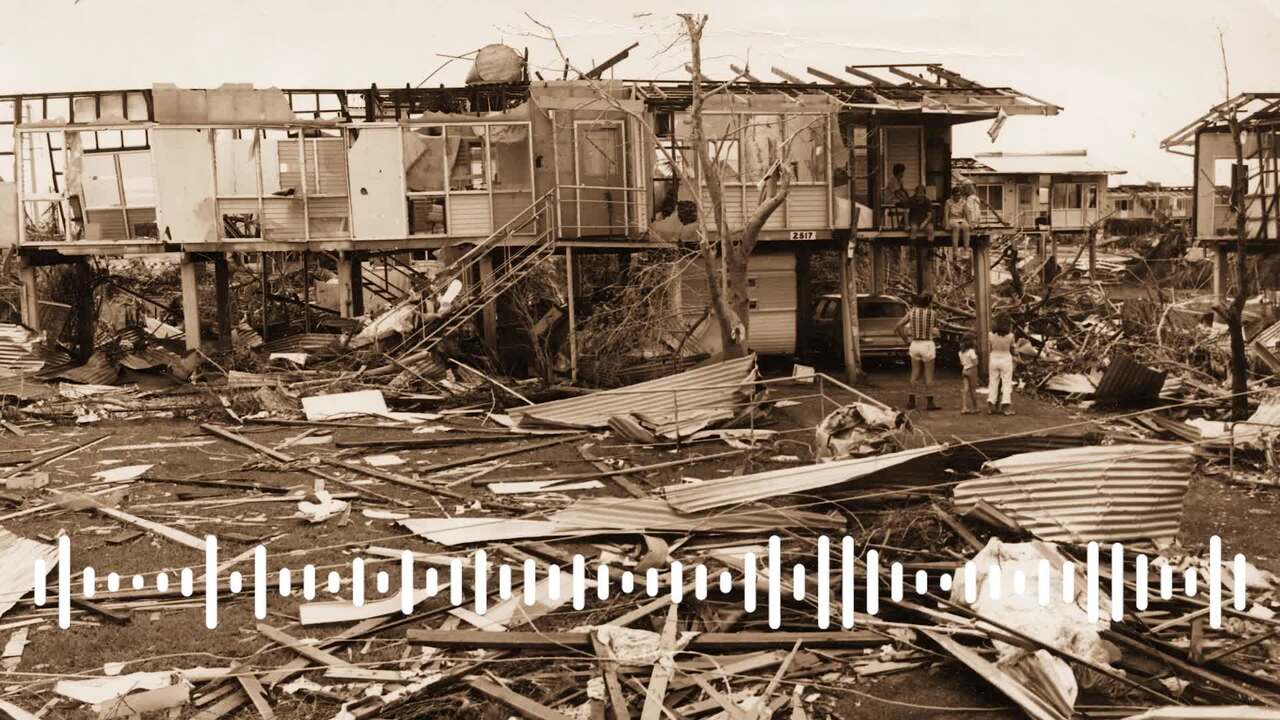
Paul Boyce is a survivor, a resilient fighter, a man who lost everything in the treacherous winds of Cyclone Tracy, who shipped off his wife and children to Sydney, and got to work restoring Darwin.
It was a promotion that brought Mr Boyce and his family to Darwin from Alice Springs, where he’d been working as a manager for the Trans Australian Airlines for the four years prior.
They made the move in the second half of 1974, not knowing they’d be spending their Christmas morning huddled in a downstairs bathroom for safety.
“I was 28-years-old and the transition from Alice Springs to Darwin was a significant change, but it was also an exciting adventure,” Mr Boyce said.
At the time, his wife Nanette was pregnant, and had given birth to their first child, Gerald, in 1973.
Come December, the festive excitement was rife through the Boyce household, and preparations for the big day were well underway.
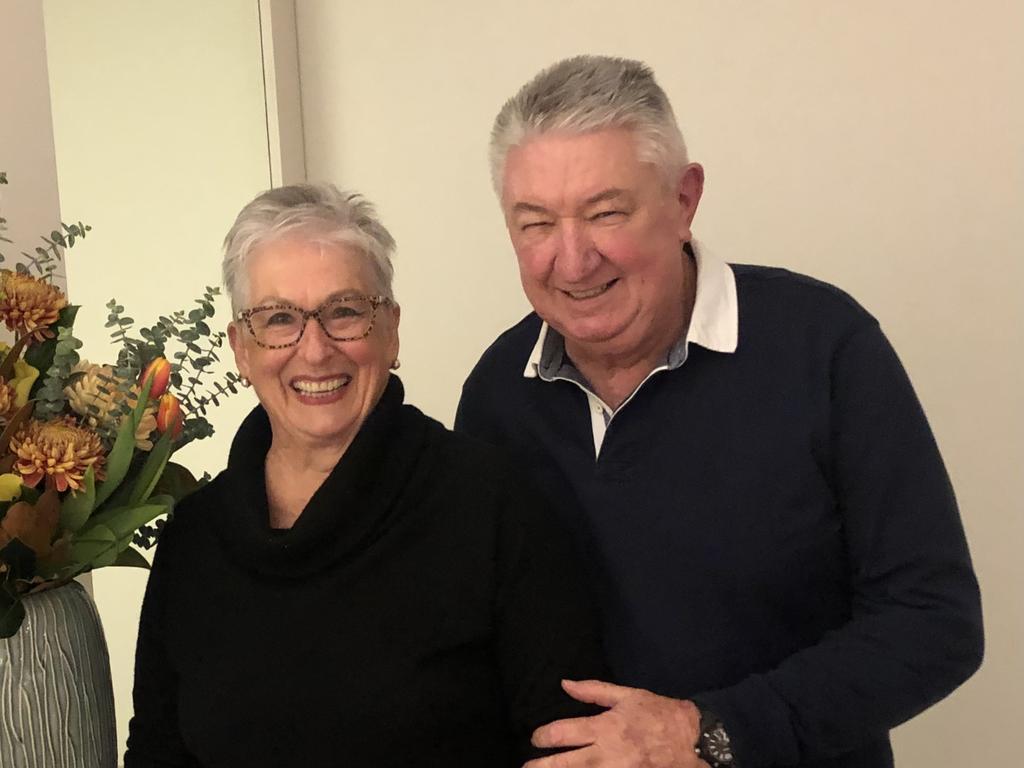
Christmas Eve was a day that started like any other, Mr Boyce said.
“I went to work at my office in the city, and in the afternoon I joined the ABC manager for a Christmas drink before heading home,” he said.
“On my way home, the winds were already picking up, a sign of the impending storm.
“I stopped to pick up Christmas presents for our son, including a dinky toy, which would later become a small symbol of resilience.
“That evening, after dinner, we were busy arranging presents under our Christmas tree.
“We had heard the cyclone warnings on the radio with the storm originally expected to pass clear of the city, but when the radio cut off, we were left in uneasy silence, feeling the storm’s growing ferocity outside.”
The Boyce family went to bed for the evening, hoping things would change before Christmas morning, and they did, but for the worse.
Around midnight, the window in the main bedroom shattered and a large splinter of glass pierced the mattress where Mrs Boyce had been sleeping – fortunately she had gone to check on their son in the next room.
The family decided the upstairs of their home was unsafe, so they hurriedly hunkered down in the bathroom under the stairs for shelter.
“Huddled together, we endured the storm’s wrath for over six hours,” Mr Boyce said.
“During a brief lull as the eye of the cyclone passed, we ventured out to survey the damage.
“The lower section of our house was in ruins.
“Howling winds roared with incredible destructive force ripping and tearing the house’s upper roof off.
“Our hair stood on end as the house disintegrated around us.
“Through it all, we clung to each other, finding fragile safety in our makeshift shelter, riding out the storm’s relentless assault.”
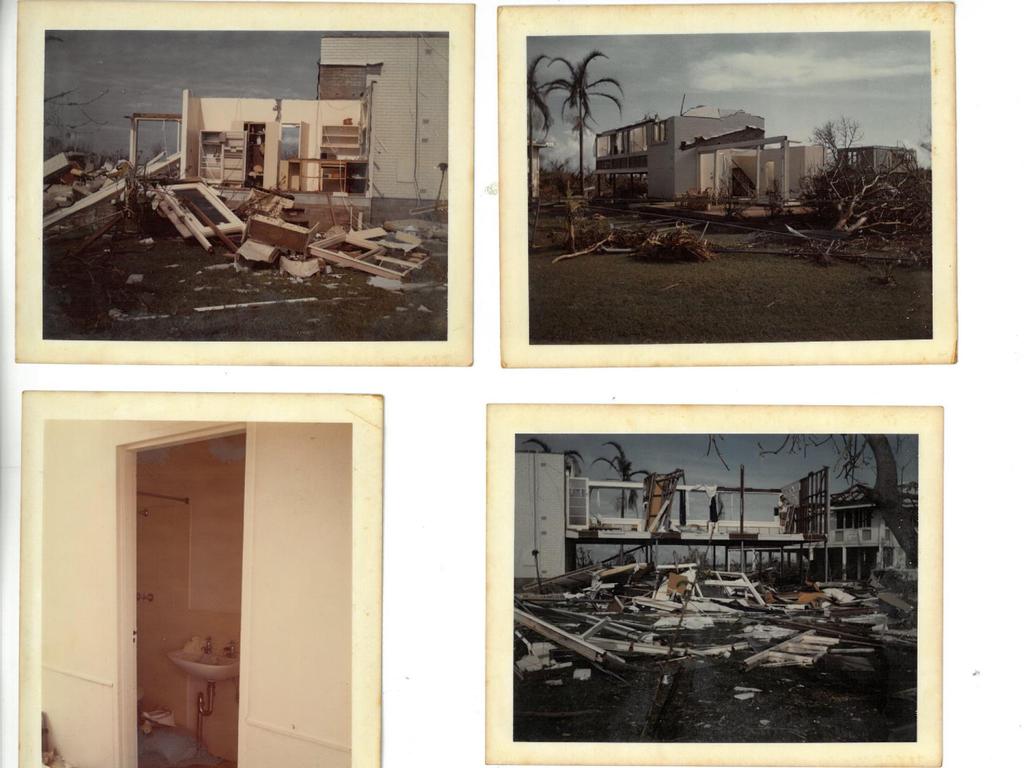
A neighbour, a Trans Australian Airlines pilot, came to check on the family the next day, and his face was etched with the same disbelief they’d been feeling, Mr Boyce said.
“By the time the storm had passed the following morning, Christmas Day, our home was unrecognisable – the roof was gone, and all that remained were structural frames without any sheeting,” he said.
“It was utterly devastating.
“Our once vibrant community had been laid to waste.
“Sheltering under the stairs, we had feared a storm surge flooding our house, given its precarious location opposite Fannie Bay.
“Thankfully, the surge didn’t come, but the cyclone had already taken everything else from us.
“Our home and all our belongings – clothing, personal items, Christmas presents – were gone.
“We were left homeless with just the clothes on our backs.”
In the aftermath of Cyclone Tracy, Mr Boyce’s connections in the tourism industry were a lifeline for the family.
Mrs Boyce was seven months pregnant, their son Gerald only 18-months-old, and against all odds Mr Boyce secured the family a refuge, a room in a local hotel that – though it too was not spared from damage by the cyclone – they were grateful for it.
On the morning of December 26, Mr Boyce’s airport manager tracked him down at the hotel and informed him that he’d need to report to the Darwin Police Station, where Major-General Alan Stretton, the disaster co-ordinator, was holding a critical meeting.
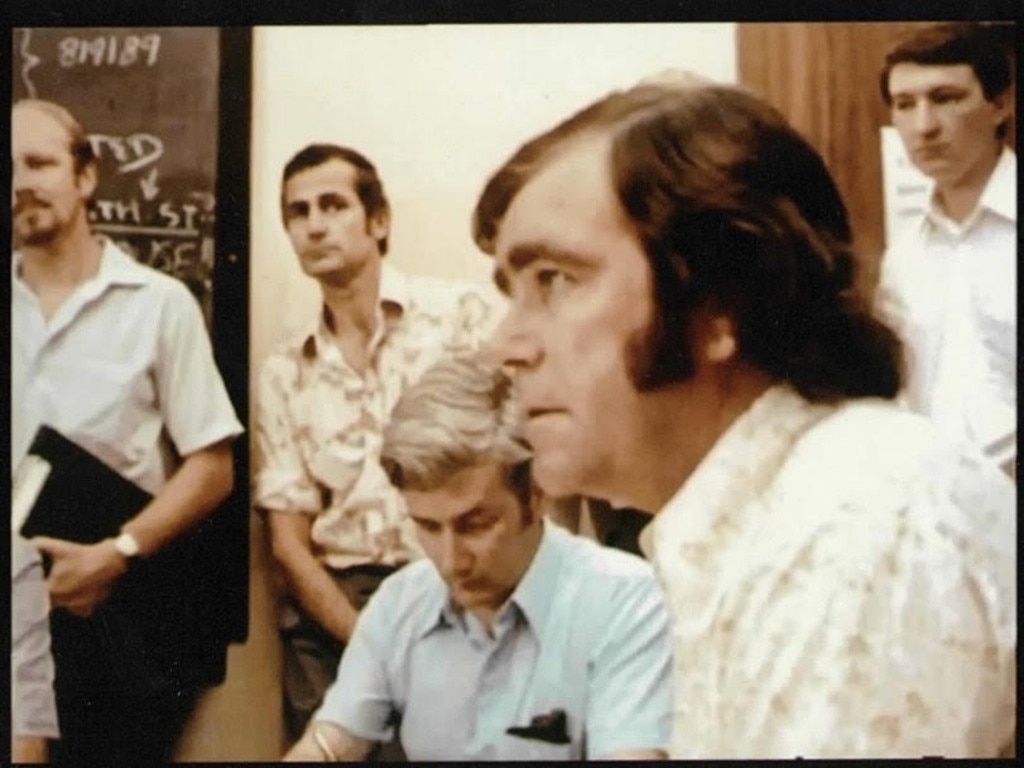
“Arriving at the police station, I found myself among the heads of government departments including the mayor, navy and army chiefs, as well as the managers from Ansett and Qantas,” Mr Boyce said.
“The gravity of the situation was confirmed: Darwin was in a state of emergency.
“There was no power, telecommunications were down, the water was polluted, food was scarce, and countless homes and shelters were destroyed.
“The directive came swiftly: non-essential residents of Darwin needed to be evacuated.
“Despite losing their own homes and suffering immense personal losses, Trans Australian Airlines staff in Darwin rose to the occasion, playing a crucial role in what became the greatest airlift in Australia’s history at the time.”
Staff worked at the airport from five in the morning to eight at night, supervising loading and turning the evacuation flights around to get people out of Darwin as fast as possible.
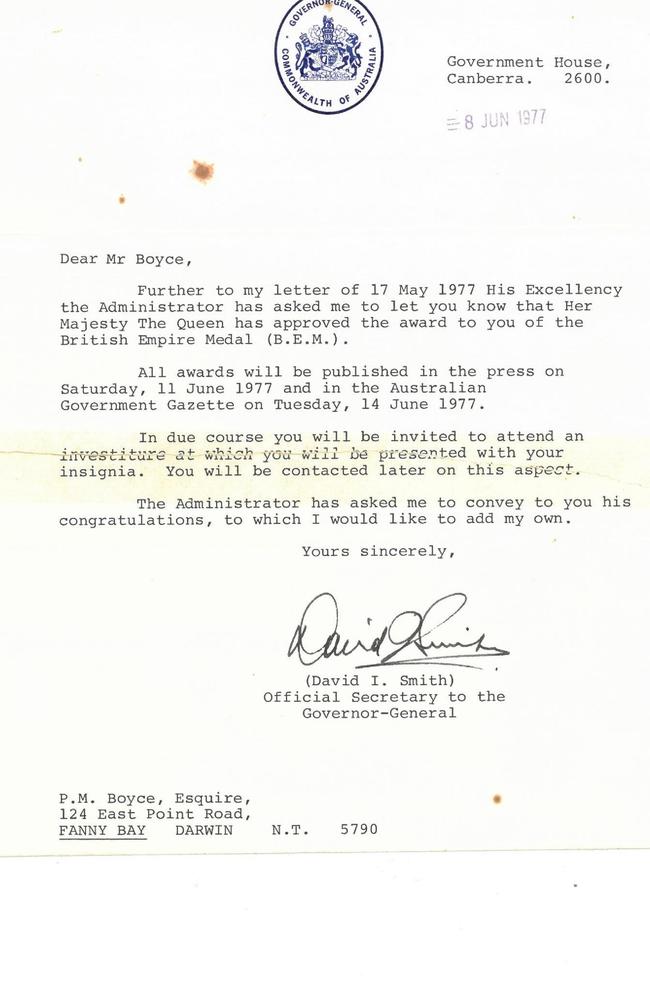
The task was to co-ordinate commercial flights to evacuate Darwin residents to family and relatives in southern cities, prioritising pregnant women, and women with young children.
Mrs Boyce and Gerald were among the first to be evacuated to Sydney.
Mr Boyce said he established a base in the Trans Australian Airlines office, which was still two inches deep in water.
“Every morning, I attended meetings at the Darwin Police Station with Major-General Stretton and other local leaders,” he said.
“There, I received the number of people to be evacuated the next day and relayed this information to my Melbourne colleagues.
“During the recovery, I lived in single men’s accommodation on Smith Street, while my wife stayed in Sydney with my parents.
“She gave birth to our second son in February and did not return to Darwin until four months later when I had arranged suitable accommodation.”
Throughout the recovery period, Mr Boyce was heavily involved in the reparation work of Trans Australian Airlines facilities in Darwin which had been destroyed or significantly damaged in the cyclone.
“Over the next three years, we rebuilt our lives alongside the city of Darwin, our resilience and determination driving us forward despite the challenges,” Mr Boyce said.
“The storm had taken much, but it couldn’t take our spirit.
“We eventually moved back into our house at Fannie Bay and lived in Darwin for the next three years.
“Our youngest child, a daughter, was born at the Old Darwin Hospital in 1976.”
In 1977, Mr Boyce was advised that Her Majesty The Queen had approved his award of the British Empire Medal in recognition of his service to Darwin and the people of Darwin in the wake of Cyclone Tracy.
More Coverage
Originally published as ‘The house disintegrated around us’: Paul Boyce recalls Cyclone Tracy mayhem and recovery








